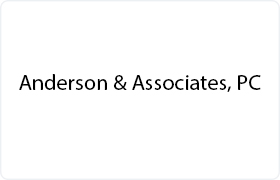Moyock Collection Lawyer, North Carolina
Sponsored Law Firm
-
 x
x

Click For More Info:
-
Anderson & Associates, PC
905 Halstead Blvd, Unit 6, Elizabeth City, NC 27908» view mapBankruptcy & Debt Law We're Here to Help
The Law office of Anderson & Associates will aggressively represent your interests to obtain any and all relief.
800-217-0430
Not enough matches for Moyock Collection lawyer.
Below are all Moyock Bankruptcy & Debt lawyers.
John G Trimpi
Real Estate, Corporate, Bankruptcy, Personal Injury
Status: In Good Standing Licensed: 52 Years
 Tim Anderson Virginia Beach, VA
Tim Anderson Virginia Beach, VA AboutAnderson & Associates, PC
AboutAnderson & Associates, PC Practice AreasExpertise
Practice AreasExpertise
